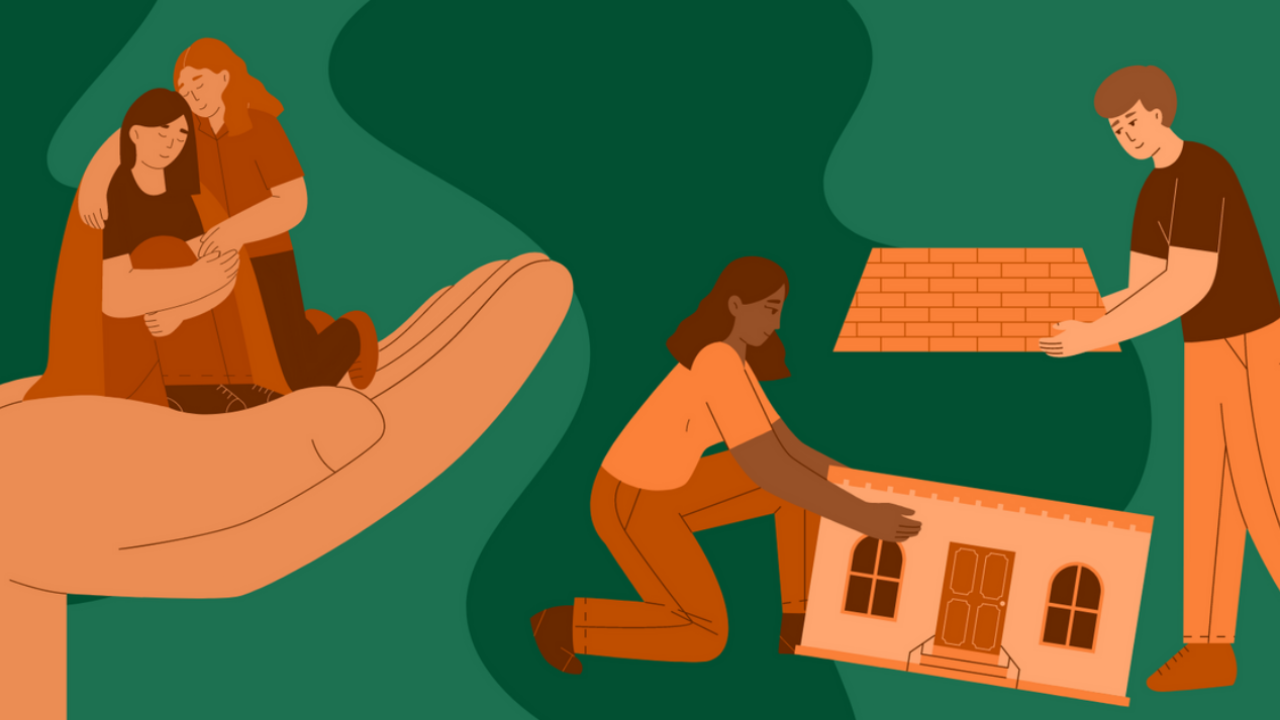Healing From The Trauma Of Narcissistic Abuse

Narcissistic abuse has a detrimental effect on the lives of trauma survivors, often entangling them in the bitter cycle of trauma bonding.
Narcissistic abuse involves toxic and manipulative behavior by a person with narcissistic traits such as a grandiose sense of self-importance, a need for admiration, and a lack of empathy.1 Unfortunately, this type of abuse is far more common than we may think, and it can affect us in work, family, and romantic relationships.
What are the signs of narcissistic abuse?
Narcissistic abuse manifests as different types of toxic behavior, which has a devastating effect on the trauma survivor’s mental, emotional, and physical well-being. These behaviors include love-bombing, victim-blaming, gaslighting, stonewalling, and other emotional and physical neglect.2
A narcissist will often shower the trauma survivor with constant praise and affection, also known as ‘love-bombing.’ This often seems positive at first, but it is a form of emotional manipulation to make the survivor dependent on the abuser.
Narcissists mimic the feelings, values, and interests of the trauma survivor to manufacture a ‘soulmate effect.’3 After this phase, the narcissist will suddenly begin to exhibit abusive and cold behavior, such as using tactics to blame, gaslight, and invalidate the trauma survivor.3
Narcissists use this behavior to isolate trauma survivors and damage their confidence, allowing them to gain control within the relationship.
How does narcissistic abuse affect us?
The cycle of narcissistic abuse causes a complex interaction of hormones and chemicals in the brain of the trauma survivor. Over time, this can negatively impact the functioning of the body’s nervous system.
During the narcissistic abuse cycle, the body releases pleasurable hormones such as dopamine and oxytocin, which promote feelings of bonding with the narcissist.4 These feelings – combined with the cortisol and adrenaline that are released when the narcissist inevitably pulls away – create a cycle of reinforcement that makes it difficult for the survivor to leave the abusive relationship.
According to Dr. Bessel Van Der Kolk (2014), trauma can cause the area of the brain responsible for speech production (Broca’s area) to shut down, making it difficult to talk about these types of traumatic experiences.
Somatic and body-based therapies to heal trauma
Toxic and abusive relationships overwhelm the nervous system. By focusing on the mind-body connection, somatic and body-based therapies nurture the nervous system and allow the body to release stress and trauma.
Our Narcissistic Abuse Recovery Program is an expert-led, self-paced program that makes use of different modalities and guided therapies, such as yoga, somatic work, and drama therapy, to:
- Soothe the nervous system by balancing key hormones such as serotonin, dopamine, and cortisol.
- Ease and release feelings of shame and self-blame by understanding how these feelings are stored in the body.
- Establish healthy boundaries by giving yourself permission to erase negativity from your life.
- Re-establish self-agency and restore your sense of self-confidence.
- Rebalance your inner equilibrium by releasing panic, anxiety, and frustration from the body.
Guided by experts in the field, our Narcissistic Abuse Recovery Program will support you in releasing past experiences and feelings that no longer serve you and enable you to reinvite feelings of compassion, permission, and agency into your mind and body.
Sources:
1 American Psychiatric Association (2013) Diagnostic and statistical manual of mental disorders (DSM-5). Washington DC: American Psychiatric Association.
2 Elise, S. (2018). Experiences of narcissistic abuse: an exploration of the effects on women who have had a long term, intimate, relationship with a suspected narcissistic male partner.
3 Arabi, S. (2017). Power: Surviving & thriving after narcissistic abuse. Brooklyn, NY: Thought Catalog Books.
4 Silberstein, C. (2019). On my mind: Narcissistic abuse. The martha’s vineyard times. Retrieved July 11, 2022, from https://www.mvtimes.com/2019/03/27/mind-narcissistic-abuse/
